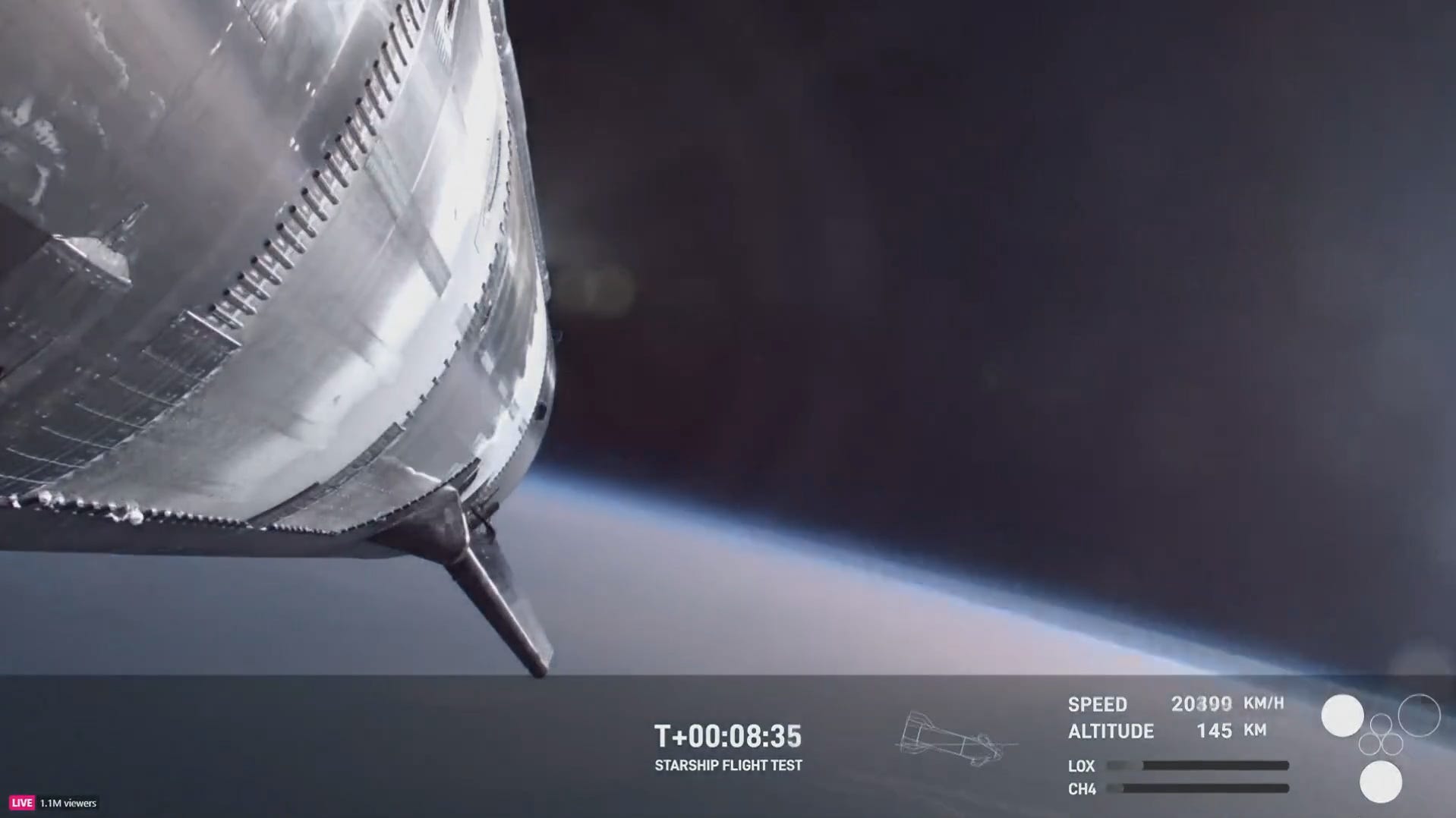What's next for SpaceX Starship, following Thursday explosion? Musk says more testing

- SpaceX's eighth Starship flight test on Thursday resulted in an explosion, the second of such uncrewed tests since January.
- Nine minutes after the launch, SpaceX lost communication with the Starship vehicle, which experienced a "rapid unscheduled disassembly," the same cause of the January explosion.
- SpaceX's first Starship launch was in 2023. SpaceX CEO Elon Musk said last year that he hopes to complete 25 total Starship launches in 2025.
SpaceX's latest Starship test on Thursday night resulted in the second explosion of an uncrewed flight test since January.
Just over nine minutes after the Starship launch Thursday night, SpaceX lost communication with the vehicle, which experienced a "rapid unscheduled disassembly." The vehicle exploded, scattering debris through the sky, as the Super Heavy rocket returned to its launch site − the third successful return of a Starship rocket booster.
"Today was a minor setback," SpaceX CEO Elon Musk said in an X post Thursday. "Progress is measured by time. The next ship will be ready in four to six weeks."
In a statement to Paste BN, the Federal Aviation Administration said SpaceX will be required to carry out a mishap investigation into the explosion. In a mishap investigation, SpaceX will look to determine the root cause of the explosion and what actions to take to avoid another.
Here's what to know about what's next for SpaceX's Starship tests.
What happened to Starship in its eighth test?
In Thursday's test, SpaceX launched its Starship at 6:30 p.m. ET from the SpaceX Starbase in southern Texas. The 400-foot vehicle contained both the 165-foot Starship spacecraft and the 232-foot Super Heavy rocket, which launches the vehicle. The vehicle is being developed and tested for crewed missions.
The flight test had been set for last week, but SpaceX had to await approval from the Federal Aviation Administration.
The Super Heavy rocket booster returned to its landing pad at Starbase, but the spacecraft exploded instead of soaring over the Gulf of America− formerly known as the Gulf of Mexico before President Donald Trump renamed it earlier this year − before landing in the Indian Ocean, as was the goal.
Preliminary information allowed SpaceX to conclude that "an energetic event" in the vehicle's aft section led to the loss of several Raptor engines and the communication breakdown.
Explosion is not the first for SpaceX testing
Thursday's flight test was not the first time a Starship has ended in an explosion.
On Jan. 16, almost an identical explosion occurred. Eight-and-a-half minutes into its flight, mission controllers lost contact with the spacecraft, resulting in the same "rapid unscheduled disassembly."
SpaceX, which conducted an investigation with the FAA, determined that the explosion was caused by a series of propellant leaks and fires in the aft section that caused “all but one of Starship’s engines to execute controlled shut down sequences." That led to the communication cutoff, and the vehicle triggered its own destruction.
SpaceX's first three launches of the mega-rocket ended in explosions before the company managed to land the spacecraft on June 6, 2024, in the Indian Ocean.
What's Musk's goal with Starship?
SpaceX has spent years building and testing Starships in hopes it will become the first fully reusable launch system to carry humans and cargo to the moon and possibly Mars.
As outlined in NASA's lunar exploration plans, Artemis III astronauts aboard the Orion capsule would board a Starship while in orbit for a ride to the moon's surface.
Musk has said he wants SpaceX to send the first Starships to Mars by late 2026, the next time Earth and Mars line up.
What's next for Starship? More tests, Musk says
SpaceX has increased into Starship launches over the past two years, with two flight tests in 2023 and four in 2024. This year, Musk has proposed 25 Starship launches. Though Musk's request would need approval from federal regulators, it comes as the tech mogul's influence over U.S. policy has grown since Trump took office.
Though Musk touted another launch in four to six weeks on X on Thursday, SpaceX has not officially set a date for the ninth Starship launch.
Greta Cross is a national trending reporter at Paste BN. Follow her on X and Instagram @gretalcross. Story idea? Email her at gcross@usatoday.com.